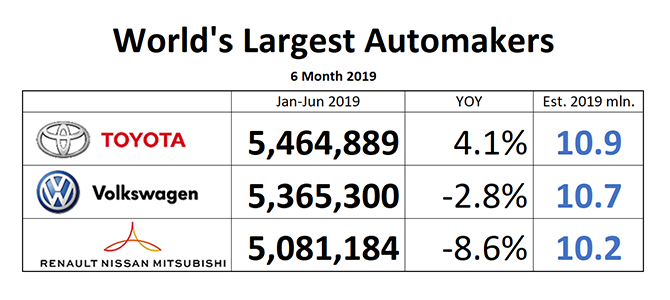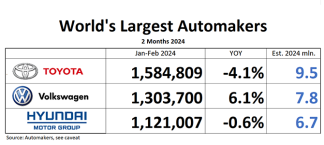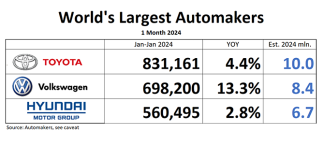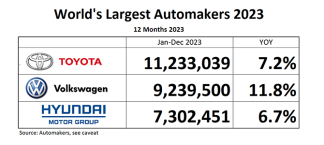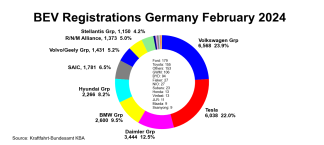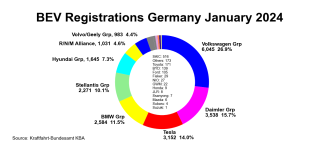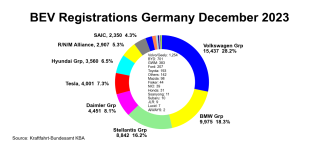Six months into the year, Toyota not only managed to solidify its lead over global behemoths Volkswagen and the Renault-Nissan-Mitsubishi Alliance, it also increased its growth over the same period in the preceding year. This in itself is a remarkable feat, given the fact that the global auto market has crested, and entered what could be a prolonged downturn. Toyota prepared for the inevitable down-cycle for nearly a decade, and the benefits of the diet are obvious.
January through June, Toyota group companies managed to output nearly 5.5 million units. This puts the Japanese company nearly 100,000 units ahead of runner-up Volkswagen. Volkswagen can be proud of this gap, given that last month, the Germans were more than 160,000 units behind the Japanese competition. Still, Volkswagen’s YTD deliveries are nearly 3% below the previous year.
The third contestant on the podium, the Renault-Nissan-Mitsubishi Alliance, continues to look worse by the month. Its combined output now lags by 8.6%; a month before, it was 7.2%, and we haven’t seen the worst of it. In the month of June alone, the Alliance was down in the double digits, and last week, Nissan announced the elimination of nearly a 10th of its global workforce. Down 9% year-to-date, and a whopping 19% in June, Nissan clearly is the worst performer of the quickly unraveling Alliance. Instigating a palace revolution by putting its hard-charging chairman Carlos Ghosn behind bars (he is free on bail, awaiting trial in Tokyo) wasn’t smart.
And now the necessary caveat:
The race for World’s Largest Automaker is not decided by sales, but by production, and this analysis attempts to track production, not sales, because this is how the world automaker umbrella organization OICA ranks automakers.
Due to the different methodologies of their measurement, “sales” numbers have proven to be unreliable, and prone to ‘sales reporting abuses,” as recent scandals in the U.S., along with rampant “self-registrations” in the EU have shown.
At the same time, data reported by automakers are becoming increasingly hard to compare.
Toyota reports production and sales. Volkswagen reports “deliveries” to wholesale – which can be cars dumped on dealer lots, or actual sales to customers. The Alliance numbers used to be a blend of production data reported by Nissan and Mitsubishi, and deliveries reported by Renault. As of September 2018, Renault started to report sales only, forcing us to use those.
